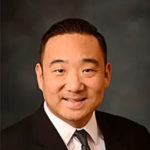 As DSOs continue to attract attention of industry regulators, staying current and knowledgeable of the rules is an imperative
As DSOs continue to attract attention of industry regulators, staying current and knowledgeable of the rules is an imperative
Dental service organizations are increasingly popular among dental professionals looking to reduce the demands and costs associated with running a practice. Nevertheless, they are a relatively new phenomenon and, as such, continue to receive close attention from regulators. Because of that, DSO leaders must continue to educate dentists and patients, policymakers and industry stakeholders about their benefits. At the same time, lawmakers must work to clarify the role of DSOs within existing regulations.
Efficiency in Group Practice spoke with two industry experts who address the impact of regulations on DSOs, as well as the impact of DSOs on the community.

Efficiency in Group Practice: Why are DSOs under increasingly more scrutiny?
Mark Hahn, vice president and general counsel, Mortenson Dental Partners: Even though DSOs may have increased in popularity, clinicians affiliated with DSOs still make up only a very small percentage of dental practices in the United States. Although certain states have taken regulatory measures, most of those measures have been aimed at clarifying existing laws rather than increasing scrutiny. However, any additional scrutiny stems from the fact that DSOs are a new way to think about dentistry, and anything new often receives heightened scrutiny.

Lisa Steelman, vice president of government affairs, the Association of Dental Support Organizations (ADSO): DSOs are not necessarily under increasingly more scrutiny than in years past. Granted, there is a great deal of misinformation out there, although that also appears to be changing. As more legislators, dental boards and dental societies learn the facts behind DSOs, many of them are coming to the conclusion that DSOs provide a service to the dentists that contract with them that, quite frankly, is needed. Representatives of the public and of organized dentistry are also seeing the good that DSOs provide to dentists, which helps enable those dentists to make quality dental care available to many persons in their states and local neighborhoods who otherwise would not have that access. Increasingly, state legislators are clarifying their laws to ensure that dentists retain the right to hire DSOs and, by extension, help increase access to dental care. Good reference points are recent changes to laws in North Carolina, Wisconsin, Washington state, Arkansas and Texas, to name a few.
Efficiency in Group Practice: Does there continue to be a misconception that clinical decisions in DSOs come from management, rather than the dentists themselves? Is this misconception driving increased state regulations?
Hahn: I think some people have these misconceptions, but I believe they come from a lack of understanding about the clinician-DSO relationship and what DSOs actually do. I don’t think these misconceptions are driving regulations, because lawmakers generally understand the concept and they draft regulations to complement or clarify – rather than limit – the ability of DSOs to affiliate with clinicians. As DSOs are a relatively new concept, I believe the misconceptions come from a fear of the unknown, and any regulations are intended to address situations that were not in existence prior to the increase of DSOs.
Steelman: Unfortunately, some misinformation (much of it older) still exists. The good news, however, is that the narrative is changing. As more and more thought-leaders learn about the benefits that DSOs provide to the dentists, their conviction of maintaining a dentist’s right to choose how he/she practices increases as well. As we all know, the thousands of dentists who choose to practice in a DSO model maintain the same requirements and professional standards as dentists who perform administrative and business tasks themselves or with the assistance of multiple service vendors and consultants. DSOs help enable dentists to be more attentive to patient care and allow knowledgeable business professionals to assist with the non-clinical administration of the practice.
Efficiency in Group Practice: Because DSO clinicians have lower overhead, is it easier for them to provide care to underserved communities? If so, would the imposition of regulatory restrictions curtail these services?
Hahn: I would say the increase in clinicians affiliated with DSOs increase the access of dental care to the general public, as well as to people from all walks of life. I think the restriction of DSOs restricts the availability of clinicians and, in turn, reduces the availability of dental care to everyone.
Steelman: While it is true that the cost savings DSOs provide enable dentists to lower their fees, that is only a part of the story of how DSO-supported dentists expand access to quality dental care to underserved communities. In addition to lower fees, DSOs provide the non-clinical support services necessary to a dentist to expand access to care in other ways, such as with evening and weekend hours, and marketing efforts to make that information known to underserved communities. Many of the dental underserved’s ability to find affordable care includes the indirect costs of taking unpaid time off from work, or in caring for children or other family members, which DSO-supported dentists help remedy by offering non-traditional evening and weekend care hours.
A paper published in 2012 by Laffer and Associates looked at 100 percent of all Texas Medicaid dental patients in fiscal year 2011 and found that DSO-affiliated dentists are providing dental care to some of the poorest, most underserved populations, at lower costs compared to non-DSO-affiliated dentists. This is because DSOs can take advantage of economies of scale, similar to what physicians have been doing through MSOs for decades. The 2012 study states, “[DSOs’] use of scale at the corporate level on aspects of the day-to-day business-like scheduling, purchasing, billing and regulatory compliance enable practices managed by DSOs to operate with much lower costs than traditional dental practices. In turn, that lower operating cost has enabled some DSOs to service Medicaid patients.” There is a general crisis in access to healthcare in the United States, including dentistry. DSOs play a vital role in supporting dentists with the non-clinical administrative and business functions of a practice, which in turn has allowed clinicians to serve more patients and expand access to oral healthcare.
As we all know, DSOs provide non-clinical support services. Attempts to regulate these non-clinical services as part of the regulations on the practice of dentistry do not make sense, and do not extend protections to patients that do not already exist. The only effect of regulating DSOs is to increase the costs to the dentists that hire them, or to decrease the services that DSOs can provide to dentists; both have a detrimental effect on how a dentist can choose to operate his/her practice, and in the ability of these dentists to help increase access to quality dental care to underserved populations in the affected states.
Efficiency in Group Practice: How do state regulations protect DSOs and their clinicians and patients?
Hahn: I believe the regulations protect everyone involved in the patient encounter, because these regulations address a space that has not been previously addressed. By addressing these issues, everyone can gain a better understanding of how DSOs should support its affiliated practices.
Steelman: The legislative landscape varies by state. Some states have taken active measures to ensure their laws are not misinterpreted to take away a dentist’s right to choose how to practice. State legislatures that have recently taken affirmative actions to protect a dentist’s right to choose how to operate his/her dental practice include Arkansas, Wisconsin, Texas and Washington state. Other states, such as Ohio, have taken action through their attorney general in support of DSOs.
Efficiency in Group Practice: What are the biggest regulatory issues impacting DSOs today, and how is your organization addressing these issues?
Hahn: The main issue is to gain an understanding of the regulations that [already exist] and to help create guardrails to stay well within those regulations. As an organization, we are constantly monitoring law changes that impact our affiliated practices. The main focus of our organization from the DSO regulatory standpoint is to stay current with the regulations. Fortunately, our challenges from a compliance standpoint have been minimal because our culture has always been focused on our affiliated clinicians. At the end of the day, the very fabric of our organization is woven around the fact that we only exist to support our affiliated clinicians and that the clinician’s responsibility is to provide outstanding patient care, while we pick up all of the administrative [details]. That way, our affiliated clinicians can focus on what they do best: Practice dentistry.
Steelman: ADSO believes that the biggest obstacle it faces is correcting the misinformation about DSOs that is out there. That misinformation and resulting lack of understanding is driving some people to seek solutions in search of a problem that really doesn’t exist. These efforts can take many forms, but the key is that all of them result in attempts to restrict how dentists can choose to handle the non-clinical side of their practice, with the resulting decrease in access to quality, affordable dental care to members of their respective states and communities. As to format, we have seen these issues sometimes raised as proposed legislation or proposed dental board rules. Regardless of the form, the intended result of the proposals all are the same. The Federal Trade Commission has been very active in support of expanding access to dental care through the services offered by DSOs, by issuing letters in regards to both proposed legislation (North Carolina and Maryland) and rule-making (Texas). ADSO addresses this matter by actively monitoring the legislative and regulatory landscape and by offering to educate key decision- and thought-makers involved in each matter. We believe that it is through this education that areas of common ground and understanding can be met, such as already has occurred in many state legislatures and with state dental boards.

